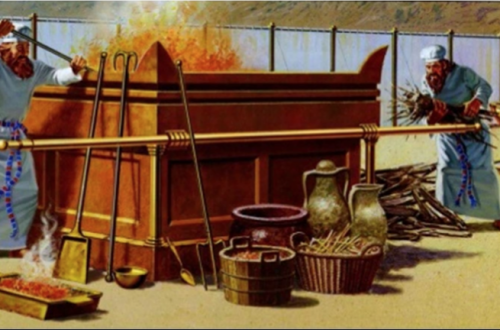Character Counts!
In 1980, a critically acclaimed movie titled The Elephant Man hit the theaters. It told the story of John Merrick, a severely deformed person living in Victorian-era England.
Due to Merrick’s disfigurement, he spent much of his childhood on display in circus sideshows. And in his adult life, he was both a medical curiosity and an object of ridicule. To nearly everyone, his notoriety was due to his horrible appearance.
Then Merrick met a surgeon named Frederick Treves. Despite his interest in Merrick’s condition, Treves was also able to recognize the person beneath the misshapen features.
The surgeon discovered that Merrick was a highly intelligent and creative person who cherished life and seemed able to appreciate the best in others. Before Merrick’s death, he went on to become an accepted member of London’s high society.
Even today, people tend to make snap, superficial assessments of others based on their appearance. For instance, supposedly "attractive" people are said to be bright, friendly, talented, and outgoing. In contrast, those deemed to be less "attractive" are typecast as unintelligent and possibly less worthwhile as human beings.
To be candid, there is no place for such a shallow and binary approach to human relationships. This is still true, regardless of whether one’s affiliations are personal or professional in nature.
From a biblical perspective, 1 Samuel 16:7 provides an additional, needed corrective to the misguided thinking described a few paragraphs earlier. The historical context is Samuel's anointing of David to be Israel's next king. His predecessor, Saul, was acclaimed for his impressive stature and good looks (see 1 Sam 9:2). Nonetheless, he proved to be an abject failure as the nation's first monarch (see 1 Sam 31).
God revealed to Samuel that, while people typically make judgments based on outward appearances, the Lord looks at a person’s heart. According to Omanson and Ellington, the reference is to the “most inward part of a person,” namely, one’s “will and thoughts.”[1]
Put another way, it’s the character of an individual that matters most to the Creator. This includes those made in His image being people of integrity. For believers the latter involves having a strong moral compass, namely, one that is grounded in Scripture and centered in the Lord Jesus.
Paul reflects the preceding mindset in 1 Corinthians 1:26–28. The apostle noted that God entrusts to the “foolish,” the “weak,” the “lowly,” and the “despised” the most valuable message the world has ever known, namely, the gospel.
Furthermore, God humbles the worldly wise by overturning their self-serving attitudes and disparaging perspectives on those they label as the outcasts of society. Indeed, the presence in the church of congregants who have no rank or standing completely negates what secularists laud as significant.
To sum up, God’s Word reminds us that what is most vital to the Lord is not what is on the outside but what is in our hearts. The Creator especially puts a premium on our character. And that’s why He wants to constantly transform us into the image of His Son and David’s greatest descendant, Jesus Christ (see Rom 8:29; 12:2; 1 Cor 15:49; 2 Cor 3:18; Phil 3:21; 1 John 3:2).[2]
____________________________________________________________________
[1] Omanson, Roger L. and Ellington, John E. 2001. A Handbook on the First Book of Samuel. (New York: United Bible Societies), Logos Research Edition.
[2] An earlier version of this blogpost first appeared at The Seminary Blog.




